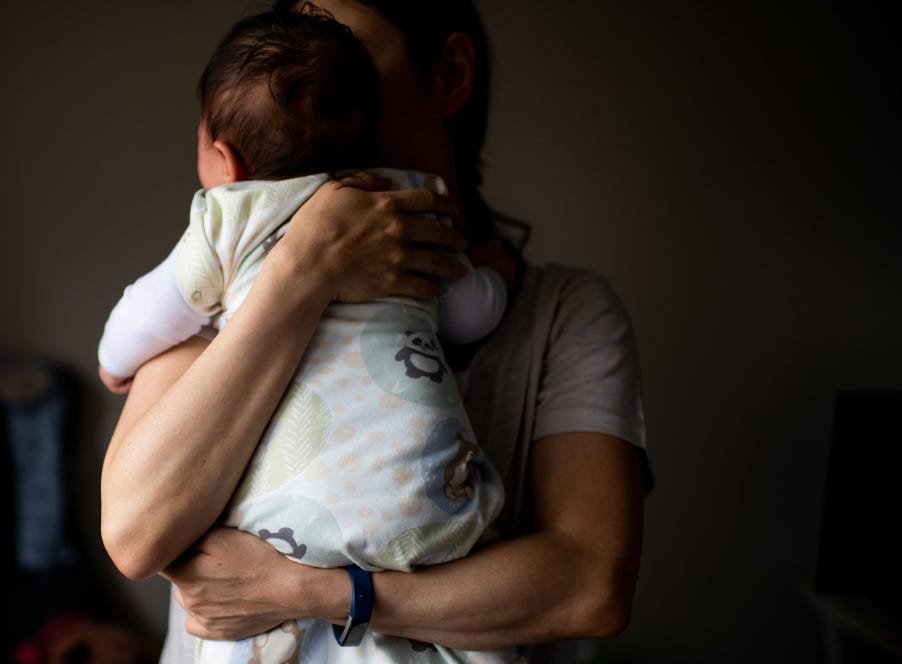
Ultimate XL Nappy Disposal Bundle with 18 Refills
Bundle & Save 40%
Subscription orders can be cancelled at anytime. Free delivery on all subsequent subscription orders. Find out more about subscriptions.
They’re easy and fuss free
Your products are automatically sent to you
You save up to 10% when you sign up for a subscription
You can cancel at any time

Sleep is very important for a baby's development, and the amount (and when) they sleep changes as they grow.
Whether it's a snoozy daytime nap or settling your little one down for the night, we're here to give you some handy tips for baby sleep so you understand your baby's needs, and to help them - and you - sleep a little better.
Explore the Range
Here's an approximate guide to how many hours a baby should sleep in a single 24-hour period. But remember that all babies are different and it's important to not compare your little one to others.
It's worth noting that babies aren't born with a circadian rhythm. They learn when to sleep and when to be awake over time. Because of this, you should try to get some sleep when your newborn does during the first few months while they adjust to a more predictable sleep schedule. Because at first, it's unlikely that their sleep routine will match your desired one!
There are lots of techniques out there that parents swear by to settle their babies to sleep, and there's no one size fits all rule!
We've selected a few of our top tips for baby sleep to try to help you get started...
From around three months old, you can help your baby to feel like it's time for sleep by adopting a winding down bedtime routine every night. Babies may not understand what you're doing, but gradually, a simple routine will encourage them to sleep. Establish a short, simple bedtime routine including the following eight steps:
Babies won't automatically sleep just because it's nighttime. But you can help to teach them the difference between day and night by taking them outside in the fresh air and letting them nap in a light, bright and busy environment during the day, then making sure their environment is dark, quiet, and snoozy in the evening.
Try to put your baby down to sleep when they're still awake but just on the cusp of dozing off. This will help them get used to getting themselves to sleep, so they're more likely to do it again when they wake during the night. If your baby falls asleep during their last milk feed, you can rouse them gently before putting them in their cot.
For all parents, there comes a time when you become ready to get back to a full night's sleep, and for your little one to sleep through the night. Most babies will start sleeping for longer stretches during the night at about four months of age - although this varies from one baby to the next!
It's best for parents to be realistic to avoid disappointment: a goal of getting your baby to sleep all the way through the night by the time they reach their first birthday is a great starting point.
The following tips can help make that dream a reality:
Remember to always sleep safely and put your baby down for sleep on their back. For the first six months, the safest place for your sleeping baby is in the same room as you but in a separate Moses basket or cot.
Create a place that your baby associates with sleep and make sure they're not disturbed. Putting them down for nighttime sleep in a comfortable, darkened room will help them feel secure as they drift off to sleep.
It's a good idea to keep their environment consistent so that if they wake in the middle of the night, the sounds and lights in the room are the same as when they fell asleep. That way, they'll find it easier to self-soothe and fall back to sleep.
Some parents semi-wake their baby for a feed (bottle or breast) just before between they go to bed themselves, often between 10pm and midnight. This is sometimes called dream feeding. It means that baby is woken and fed a little earlier than they would naturally wake up due to hunger, and it's then easier to settle them back to sleep. Eventually, the gaps between their nighttime wake-ups will get longer, meaning they'll sleep for longer too!
Sleep training is a great way for parents to support their baby's transition towards self-soothing and sleeping independently through the night. There are a few different techniques out there and it's a very personal journey, so it's all about finding the method that works best for you. Don't worry if you can't seem to get the hang of sleep training - parents sometimes find that their baby simply isn't ready to be sleep trained just yet.
During your sleep training journey, a baby sleep monitor can help to keep your baby safe, while also reassuring you and building your confidence when it comes to encouraging independent sleep that lasts all night.
Remember that your baby will go through lots of developmental changes during their sleep journey. So, don't get frustrated if they seem to take a step back from time to time and start to wake more during the night. For example, at around six and nine months, little ones start to become aware when their parents leave the room and then associate bedtime with being left alone, which causes upset.
Don't worry though, if you stick to your sleep routine and be patient, they'll soon get back on track and sleep soundly again.